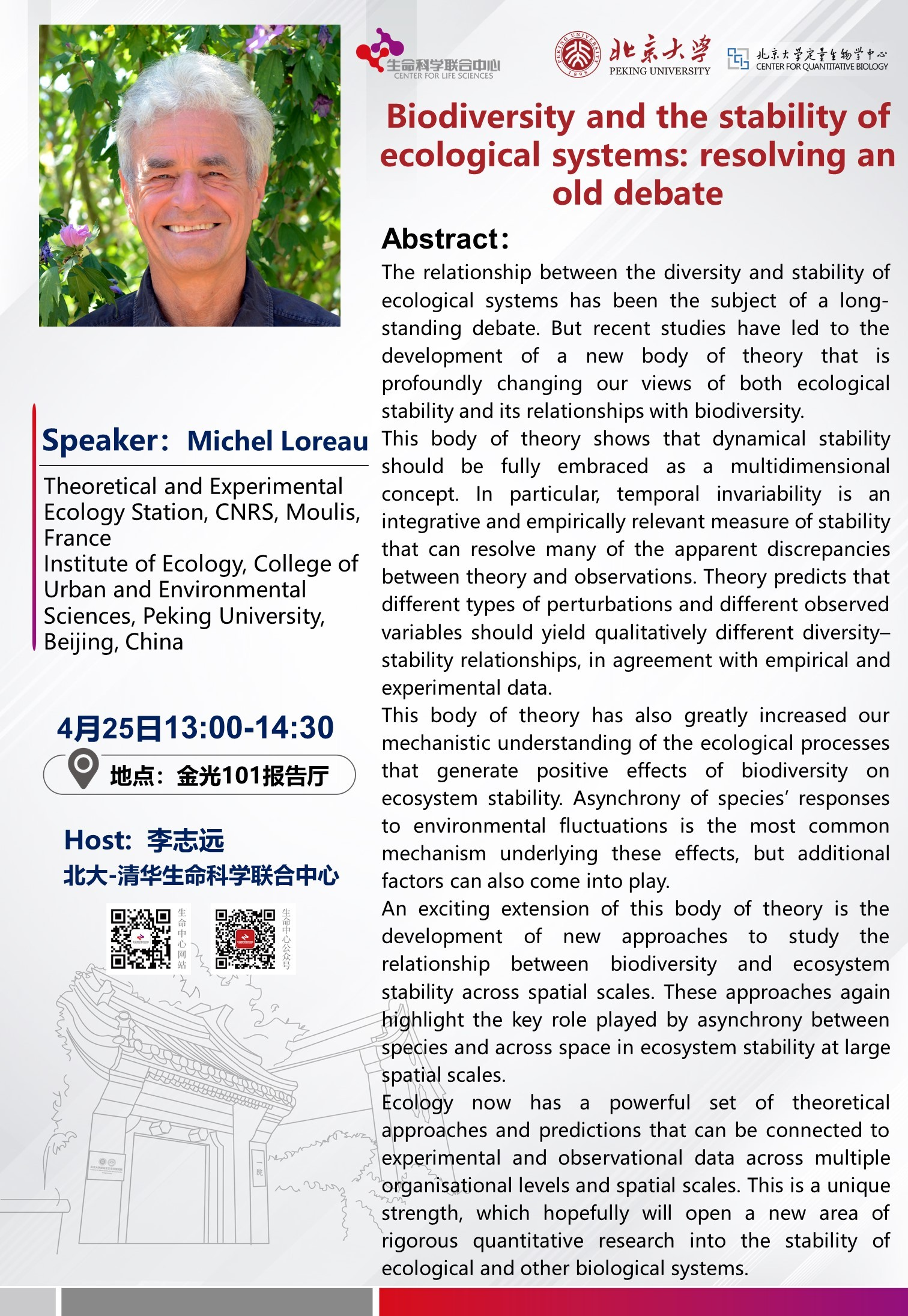
Speaker: Michel Loreau, Theoretical and Experimental Ecology Station, CNRS, Moulis,France, Institute of Ecology, College of Urban and Environmental Sciences, Peking University,Beijing, China
Time: 13:00-14:30 p.m., April 25, 2024, GMT+8
Venue: B101, Lui Che-woo Building, PKU
Abstract:
The relationship between the diversity and stability of ecological systems has been the subject of a long-standing debate. But recent studies have led to the development of a new body of theory that is profoundly changing our views of both ecological stability and its relationships with biodiversity. This body of theory shows that dynamical stability should be fully embraced as a multidimensional concept. In particular, temporal invariability is an integrative and empirically relevant measure of stability that can resolve many of the apparent discrepancies between theory and observations. Theory predicts that different types of perturbations and different observed variables should yield qualitatively different diversity–stability relationships, in agreement with empirical and experimental data. This body of theory has also greatly increased our mechanistic understanding of the ecological processes that generate positive effects of biodiversity on ecosystem stability. Asynchrony of species’ responses to environmental fluctuations is the most common mechanism underlying these effects, but additional factors can also come into play. An exciting extension of this body of theory is the development of new approaches to study the relationship between biodiversity and ecosystem stability across spatial scales. These approaches again highlight the key role played by asynchrony between species and across space in ecosystem stability at large spatial scales. Ecology now has a powerful set of theoretical approaches and predictions that can be connected to experimental and observational data across multiple organisational levels and spatial scales. This is a unique strength, which hopefully will open a new area of rigorous quantitative research into the stability of ecological and other biological systems.
Source: Room 101, Jinguang Life Science Building, PKU
